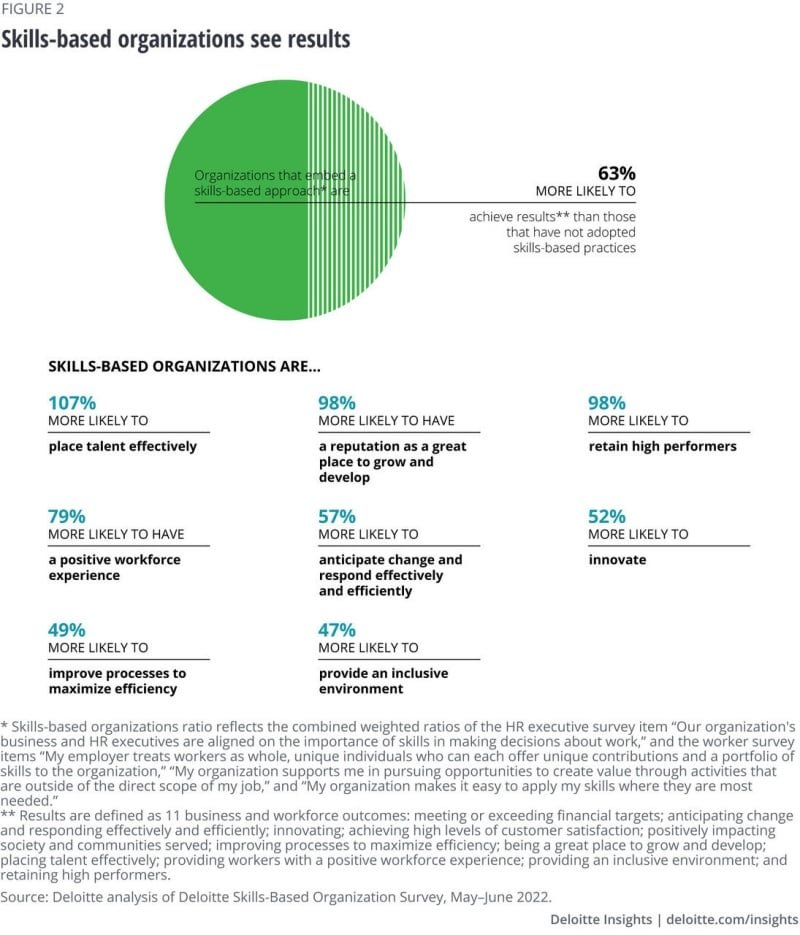Why you should hire for skill, not experience
How well does your job define what you do?
Job titles govern the structure of work - defining who it’s performed by, and how it’s valued, measured, and compensated. But do job titles help or hinder the hiring process? Recent studies have shown past experience is a poor indicator of candidate fit - because roles no longer accurately describe what we do.
24% “of workers report they do the same work as others in their organization, even though they have the same exact job title and level” ¹
71% “of workers already perform some work outside of the scope of their job descriptions” ¹
81% “of business executives say work is increasingly performed across functional boundaries” ¹
Hiring for skill is a better measure of suitability
According to Forbes² “hiring based on skills is five times more predictive of future performance than hiring for education and 2.5 times more predictive than hiring for work experience.” Skills and core competencies are much better measures for screening and hiring a candidate than job titles, degree requirements or years of experience.
Top businesses are beginning to look at skills-based hiring models of talent acquisition. Patrick Hull, vice president of future of work at Unilever, believes the new skills-based hiring model can break department silos, refocus how we view employee contributions, and boost business performance by ensuring the right talent is applied to the right tasks and projects1.
What’s to gain from skills-based hiring?
It’s 107% more likely to place talent effectively
It’s five times more predictive of future performance than degree-based hiring
It’s 2.5 times more predictive than hiring for work experience
It levels the playing field and diversifies your talent pool
Innovative companies can’t afford to get stuck in old mindsets.
If just 24% of workers with the same job title report doing the same work, then hiring or disqualifying a candidate based on their job title could be detrimental to business performance. Skills-based organizations are more likely to innovate, retain high performers and have a good reputation as a place to learn and grow. Hiring managers who take a skills-based approach are more likely to boost team performance and cement their company's reputation as an industry leader.
What can your company do to attract the right talent?
It starts with a few simple changes to your hiring practices. Attract the right skills by rewriting your job posting. Focus on the results you want, rather than the job role someone’s performed in the past. Think about the specific skill required for the role - both hard skills and soft skills - and place them at the top of your job description. When you start interviewing, make sure everyone on the hiring panel is on board with a skills-based hiring process - it’s too easy to fall back into old mindsets.
References:
1) The skills-based organization: A new operating model for work and the workforce, Deloitte Insights, 08 September 2022
2) 3 Myths You’ve Heard About Skills-Based Hiring, Forbes, Feb 24, 2022


